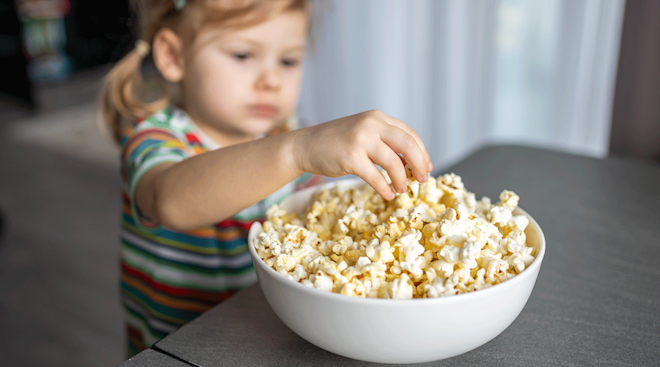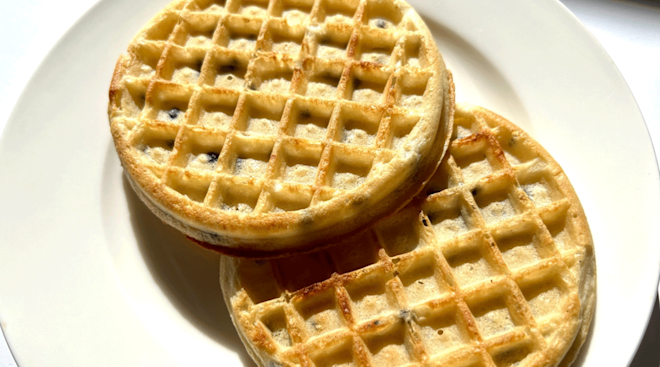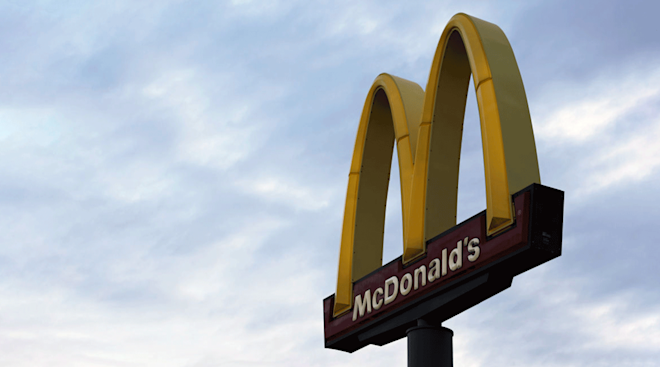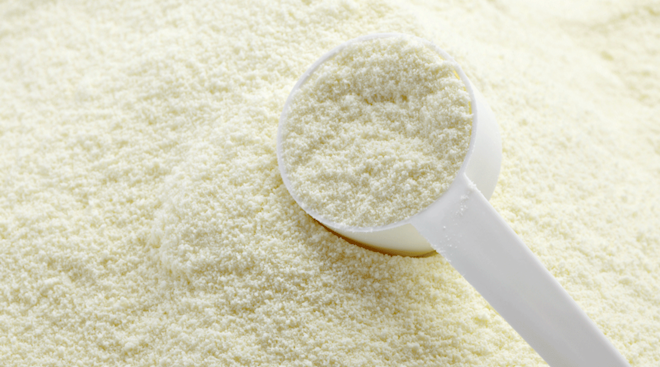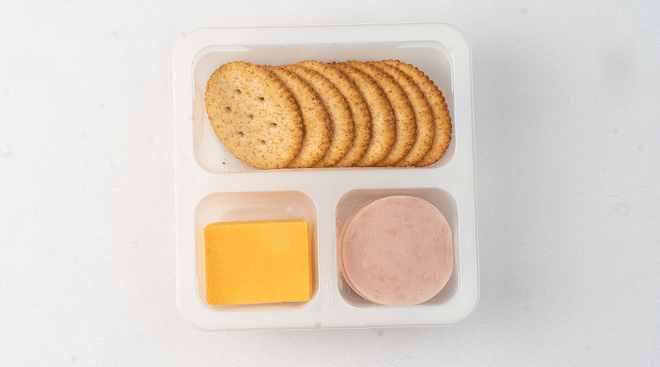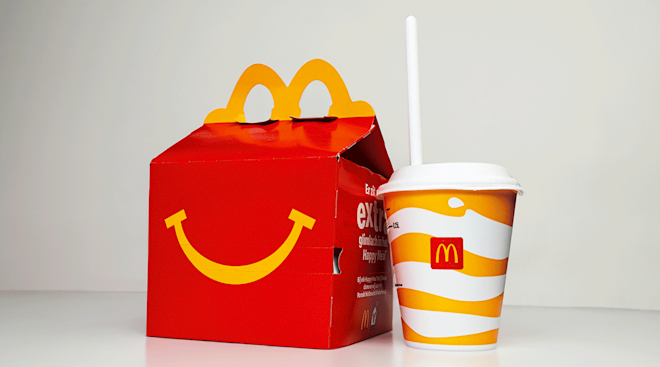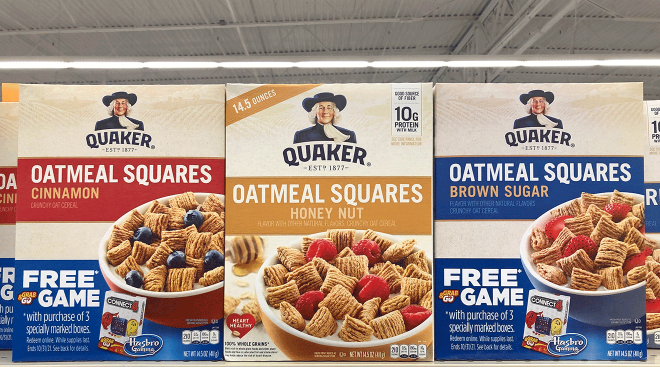AAP: the Scary Truth About How Food Additives Affect Your Kids’ Health
Meet Dina DiMaggio, MD, and Anthony F. Porto, MD, MPH, official spokespeople for the American Academy of Pediatrics and the co-authors of The Pediatrician’s Guide to Feeding Babies and Toddlers. They write about the latest AAP guidelines, studies and seasonal issues affecting babies and toddlers. Follow them on Instagram @pediatriciansguide.
The ingredients in so many food products these days are difficult to pronounce and even harder to identify. And that’s a problem. This week, the American Academy of Pediatrics (AAP) came out with a report saying there’s increasing evidence that chemicals added to food can have concerning effects on kids’ health.
More than 10,000 chemicals are legally allowed to be directly added to our food or come in contact with our food through packaging, the report states. The long-term effects of some of these chemicals haven’t been well studied, while others can pose known health concerns.
Perhaps even more troublesome is the fact that while many chemicals are designated as “Generally Recognized as Safe” (GRAS), the FDA process of approving additives may involve conflicts of interest: The evaluation of an additive for GRAS designation is sometimes conducted by employees (or those with ties to) of the company that manufactures the additive. Plus, the FDA doesn’t have the necessary authority to reassess chemicals already in use that may have been approved years ago based on outdated testing methods, and no testing is being done to evaluate potential cumulative effects of food additives.
The AAP is calling for much needed improvements in regulating these chemicals, including making sure GRAS is sufficiently stringent, obtaining more safety data, labeling those chemicals with limited safety information so consumers can be well informed, and ensuring long-term research to determine if these chemicals are safe for children.
Harmful Food Additives
Substances added directly to foods, such as colorings, flavorings and chemicals, and substances that come in contact with food, such as dyes and paper or plastic packaging, may have negative health effects, especially for kids who are still developing. Here, we break down the chemicals that are of particular concern and where you’re likely to find them, according to the AAP report:
Bisphenols
Where they’re found:
- In the lining of metal cans to prevent corrosion
- Polycarbonate plastic containers
- Plastic beverage containers may say they’re BPA-free, but they could still contain biphenol S, which is related to BPA and may have similar side effects
- Note that bisphenols have been banned from baby bottles and sippy cups
Why they’re concerning
- They’re classified as an endocrine disruptor, which means they can interfere with hormones and cause developmental disorders
- They’ve been linked to reduced fertility, altered puberty, obesity, cancer and in-utero exposure that could impair neurodevelopment
Phthalates
Where they’re found:
- Clear plastic food wrap
- In food manufacturing equipment
Why they’re concerning:
- They can adversely affect male genital development in utero and reduce testosterone levels
- They’re associated with changes in the quantity and quality of sperm
- They’re a possible contributor to childhood obesity
Perfluroalkyl chemicals (PFCs)
Where they’re found:
- Grease-proof paper
- Paperboard food packaging
- Nonstick cooking surfaces
Why they’re concerning:
- They’re associated with metabolic changes, decreased birth weight, immune suppression and reduced fertility
Perchlorate
Where it’s found:
- It’s a food packaging antistatic agent
Why it’s concerning:
- It interferes with thyroid hormone production, which is especially concerning for pregnant women and infants
Nitrates and nitrites
Where they’re found:
- Cured and processed meats, fish cheese
Why they’re concerning:
- Processed meat is classified as carcinogenic and have been linked to colorectal cancer
- High consumption during pregnancy has been linked to an increased risk of brain tumors for baby during childhood
- They may disrupt thyroid function
- Note that alternative sources of nitrates and nitrites that are labeled as “natural”—such as celery powder—may not be better
Artificial food coloring
Where it’s found:
- It’s added to foods and drinks to make them more colorful and appealing
- Coloring includes Blue 1, Blue 2, Green 3, Yellow 5, Yellow 6, Red 3, Red 40, Citrus Red 2, and Orange B
Why it’s concerning:
- It may affect children’s behavior
- Eliminating artificial food coloring from diets may help children with ADHD
Tips to Keep Kids Healthy
So what’s a parent to do? Here are four smart tips for limiting your kids’ exposure to potentially harmful food additives.
1. Feed them fruits and veggies
To help reduce chemical exposure, it’s best to eat fresh or frozen fruits or vegetables. Pick them up from the produce section in grocery stores, local farms or farmers’ markets or, if you have the option, grow a little garden in your backyard. (Kids love to help plant and harvest their own food!) Wash all produce that can’t be peeled.
2. Steer clear of processed meats
Avoid processed meats with nitrates or nitrites or natural sources of nitrates, including celery powder. Yes, bacon and turkey sandwiches are delicious, but it’s best to avoid the deli counter and go for fresher options instead.
3. Be smart about plastic
Avoid microwaving food or drinks in plastics and placing plastics in the dishwasher. You’ll also want to entirely avoid plastics with recycling codes 3 (meaning it has phthalates), 6 (styrene), and 7 (bisphenols) unless they’re labeled as “biobased” or “greenware.” When you can, use alternatives to plastics, such as glass food storage containers or stainless steel containers and reusable water bottles
4. Advocate for your family’s health
If you’re concerned about the way food additives are being regulated, speak up! Urge your local government officials to ensure a thorough approval process for GRAS that’s free of conflicts of interest, retesting of all chemicals to ensure their safety, and long-term research to ensure that additives are safe for our growing kids.
Please note: The Bump and the materials and information it contains are not intended to, and do not constitute, medical or other health advice or diagnosis and should not be used as such. You should always consult with a qualified physician or health professional about your specific circumstances.
Navigate forward to interact with the calendar and select a date. Press the question mark key to get the keyboard shortcuts for changing dates.

































